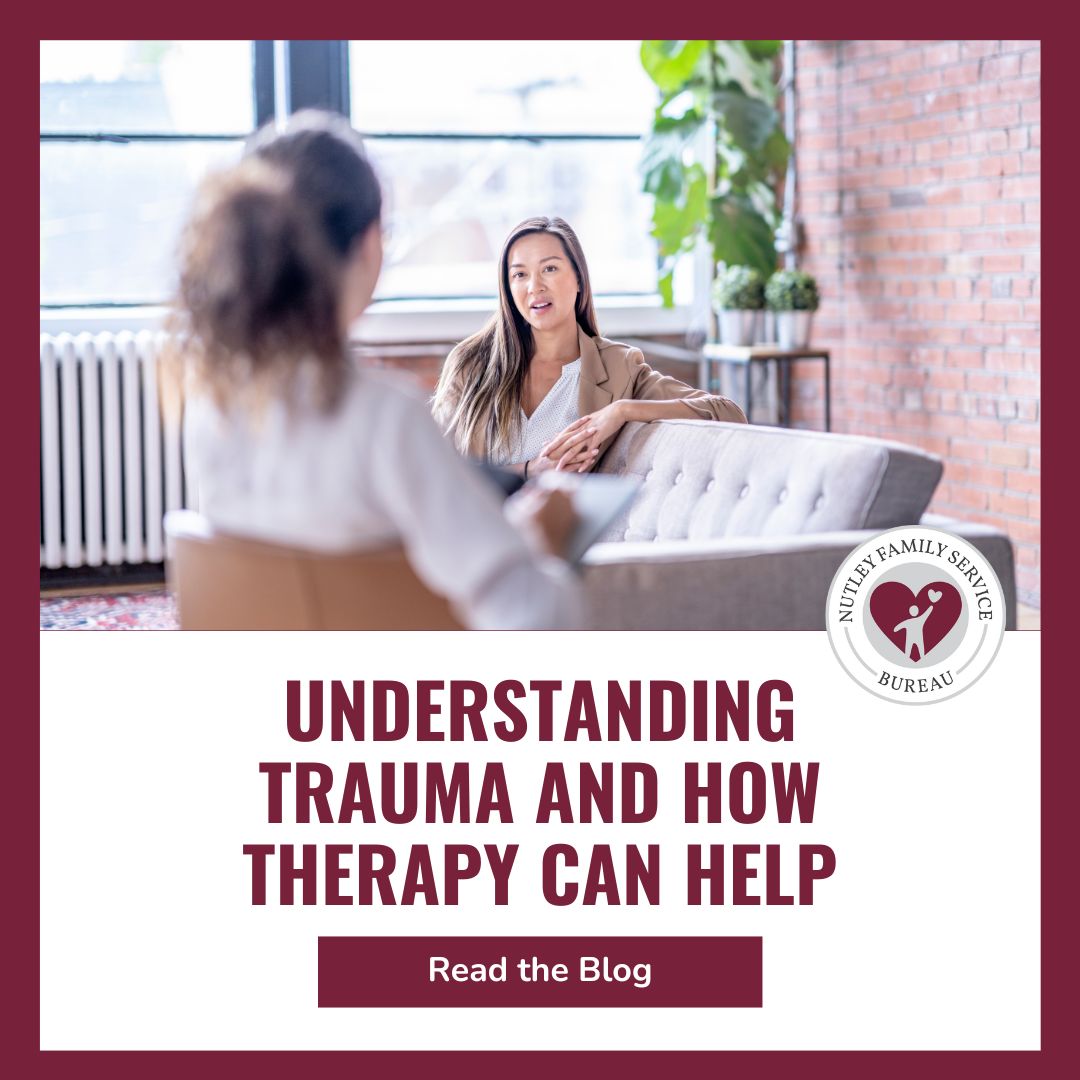-
Understanding Trauma and How Therapy Can Help
- Posted on April 12, 2022
- by admin
- in Mental Health, NFSB Blog
- Comments Off on Understanding Trauma and How Therapy Can Help

A traumatic experience, whether a single event or ongoing trauma, can be difficult for a person to process. If left untreated, trauma can have debilitating, long-term effects.
Emotionally, trauma can lead to anxiety and depression. Behaviorally, it can lead to isolation, risky or dangerous behavior, and substance use. Physically, it can lead to chronic inflammation, heart disease, sleep problems, and difficulty with memory and focus.
Trauma is a heavy burden for any individual to carry, especially for an extended period of time. Fortunately, various forms of therapy can help.
“Many people who go through life with untreated trauma find that the trauma has overwhelmed their system,” said Kelly Rivadeneyra (Master of Social Work), LCSW (Licensed Clinical Social Worker) at NFSB. “Their body, mind, and emotions function according to what happened rather than what is happening now. They’re in a perpetual state of fight or flight, which depletes their resources.”
Big T and Little t
Trauma is sometimes categorized as “little t” and “big T.” “Little t” is complex trauma involving repeated distressing events that are typically not life-threatening. Common examples include chronic emotional abuse, neglect, harassment, and bullying. Historical or generational trauma is prevalent with certain groups and societies and has lasted generations because of violence their ancestors have endured.“Big T” trauma typically refers to a significant event that was life-threatening. Experiencing assault or some other sort of physical trauma, witnessing a violent crime, receiving an upsetting diagnosis, and living through a natural disaster are examples of this type of trauma.

How Therapy Can Help
The goal of therapy is to fill the individual with resources that enable them to cope with or process the trauma.“Therapy can help you find some sort of safety within yourself and regain the stability that allows you to feel secure in your own body and environment,” Kelly said. “This allows you to get the point where you’re no longer living a fragmented life of before trauma and after trauma. Therapy can help you tie everything together.”
Treatment Modalities for Trauma
Traditional talk therapy can be very effective for alleviating the distress associated with trauma. For example, cognitive behavioral therapy seeks to change the way a person thinks about trauma. How does it influence the way you feel? How has it shaped your beliefs and thought patterns? The therapist will work to modify thoughts, feelings, and memories of the trauma so they don’t interfere with everyday life.Of course, not everyone is willing and able to talk about their trauma. In this case, other modalities can be used. EDMR (eye movement desensitization reprocessing) is a popular treatment for post-traumatic stress disorder (PTSD). EDMR involves external stimulation, like focusing on an object with your eyes, while the trauma is recalled. The therapist will gradually move to more pleasant thoughts and emotions.
“This is called bilateral stimulation, which means you’re using both hemispheres of the brain,” Kelly said. “Trauma tends to get locked into one side of the brain. EMDR unlocks the trauma so it can be processed and the brain can heal.”
Somatic therapy is a form of treatment that uses bodywork, such as breathing and meditation, to integrate what you experienced physically with the images and memories you’ve dealt with emotionally and mentally. This approach focuses on where you feel trauma so it can be released as you build a stronger connection between mind and body.
The Role of the Therapist
“I listen to what you’re experiencing and look for ways to help you feel safe in your body,” Kelly said. “I’ve found a lot of success with practices you can do at home to ground yourself and come back to the present moment instead of focusing on yesterday and tomorrow. You can’t necessarily control thoughts that pop into your mind, but you can control how you respond. By sifting through these tangled thoughts and emotions, you can cope with trauma and find more peace.”Kelly recently saw a client who received a serious diagnosis. She thought she was going to die and feared abandoning her family. Through therapy, the client was able to stay in the present. She learned to integrate this experience that changed her life, possibly forever, with living in the moment. Her anxiety decreased, her sleep improved, and she was able cherish today instead of dwelling on the diagnosis and constantly worrying about the future.
Trauma can be extremely painful for a long time. Nobody should feel like they have to deal with this pain on their own.
“It’s important to understand that trauma can overwhelm you,” Kelly said. “You shouldn’t carry such a heavy burden alone. It should be shared. Let us provide support and help you work through your experience so you can get back to living in the moment without distress.”
If you or someone you know has been struggling to process a traumatic experience, please call The Center at NFSB at 973-667-1884.
If you enjoyed this article please consider sharing it!

















